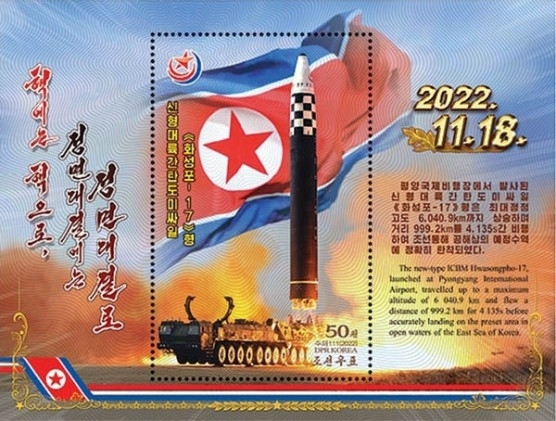
Community
Share various information for members to communicateThe Korean Peninsula remains the world's last Cold War relic. When will it transition to a peace regime? Even a cold war is essentially a state of war, merely a ceasefire agreed upon. The Korean Peninsula is, in fact, still at war.
What triggers a hot war? A war starts when the perceived benefits of military intervention far outweigh the costs. The primary reason is the potential gains from military involvement.
North Korea would likely not hesitate to use nuclear weapons and intercontinental ballistic missiles (ICBMs) if it becomes convinced that it is facing an imminent nuclear threat from another country.
To deter a potential adversary from engaging in military action, a country must possess: ① The capability to retaliate immediately after a first strike (a deterrent force), ② A credible willingness to use this deterrent force, and ③ The ability to clearly communicate its capabilities and intentions to the adversary.
North Korea is believed to have achieved the first requirement—a deterrent force—with the successful sixth nuclear test (hydrogen bomb) in September 2017 and the test launch of the Hwasong-15 intercontinental ballistic missile with a range of 13,000 kilometers in November 2017.
Regarding the second requirement, North Korea's annual New Year's addresses and the Rodong Sinmun newspaper consistently emphasize that its nuclear weapons and missiles are for the preservation of the regime and the safety of its people, but that they will be used without hesitation if North Korea is attacked. Given North Korea's reputation for following through on its threats, this declaration of intent is highly credible.

North Korean postage stamp commemorating the successful launch of the Hwasong-17 intercontinental ballistic missile. [Photo provided by Ahn Jae-young]
"When did North Korea become obsessed with developing nuclear weapons?
According to Thae Yong-ho, a former high-ranking North Korean diplomat who defected, the decision to pursue nuclear weapons was made after the Korean War. When the Chinese People's Volunteer Army intervened in the war, turning the tide against the UN forces, North Korean residents feared that the US would use atomic bombs to reverse the situation. Kim Il-sung, witnessing the public's panic, realized the devastating power of nuclear weapons and decided to develop them. In 1956, he sent 30 physicists to the Soviet Joint Institute for Nuclear Research, instructing them to focus on nuclear weapons development.
During the period of friendly relations between China and the Soviet Union in the mid-1950s, both countries sent their nuclear scientists to the Soviet Union for training. However, as the Sino-Soviet split deepened in the late 1950s, North Korea, which had been observing the ideological conflict between its two major allies, began to emphasize self-reliance and decided to pursue its own nuclear development program.
In 1975, when Kim Il-sung visited Beijing, Mao Zedong reportedly discouraged him from pursuing nuclear weapons. This solidified North Korea's belief that its biggest obstacle to nuclear development was not the United States but China.
The United States, as a capitalist nation, has often prioritized economic interests in its foreign policy. Its interventions in countries like Libya, Syria, and Iraq, all of which were once relatively stable, demonstrate this pattern. These interventions have transformed these nations into some of the most unstable and impoverished countries in the world.
Many North Korea experts believe that North Korea's firm decision to pursue nuclear weapons was made in 2003, following the US invasion of Iraq. The US-led invasion of Iraq, justified on the pretext of eliminating weapons of mass destruction, convinced the North Korean leadership that they needed nuclear weapons to deter a similar attack.
It is illogical to assume that North Korea, with its relatively small nuclear arsenal, would develop nuclear weapons with the intention of launching a preemptive strike against the United States. The primary purpose of North Korea's nuclear weapons is deterrence, not aggression. This is especially true given the US threats of a surgical strike against North Korea and the frequent media reports of North Korea being a target for US nuclear weapons.
To overcome its economic difficulties, North Korea needs to join the World Trade Organization (WTO). However, North Korea will only denuclearize if it receives credible assurances of regime security, sanctions relief, and non-interference in its internal affairs. South Korea and other regional powers must provide these assurances to alleviate North Korea's fears of a Libyan-style outcome.
Source from http://www.tongilnews.com
| 댓글 0 개 |
| 번호 | 제목 | 작성자 | 등록일 |
|
|
|
|
|
|





